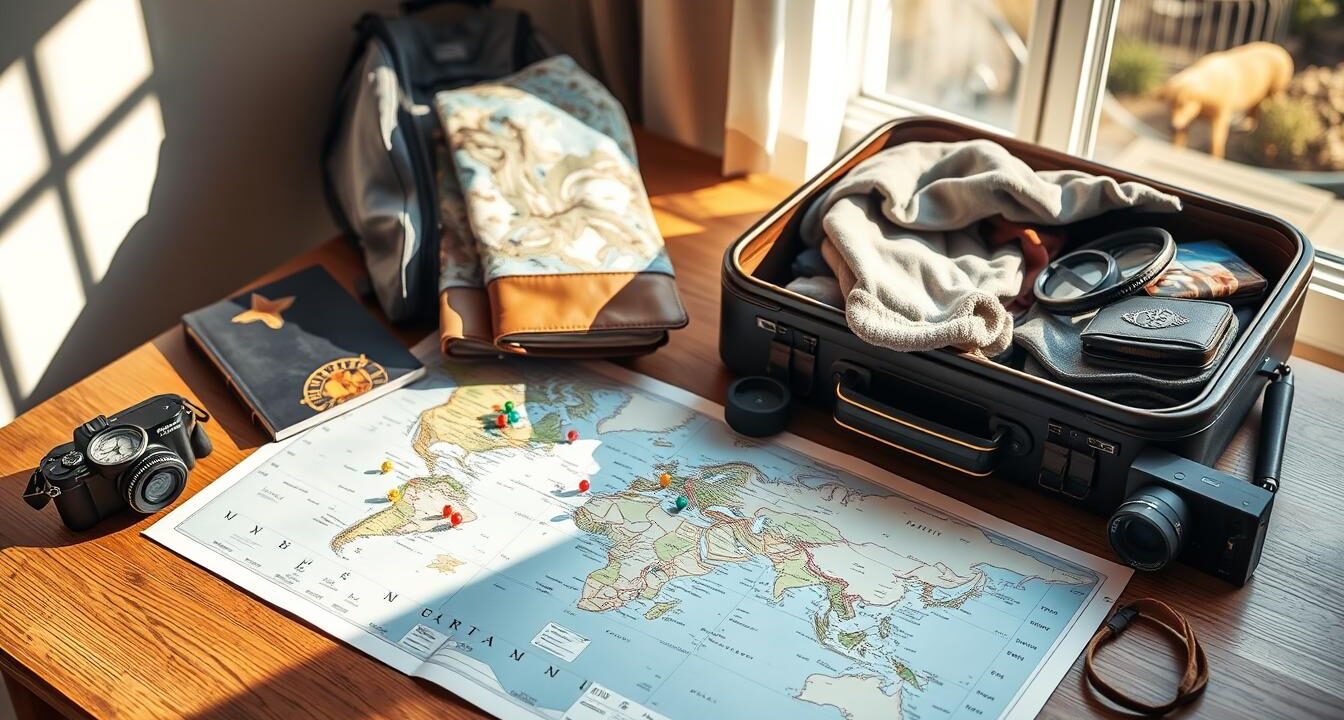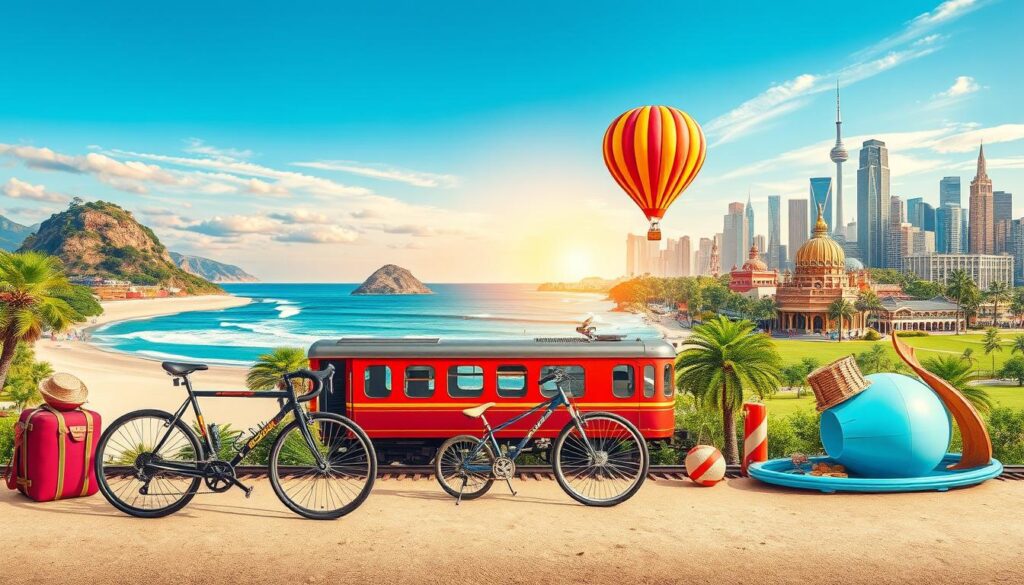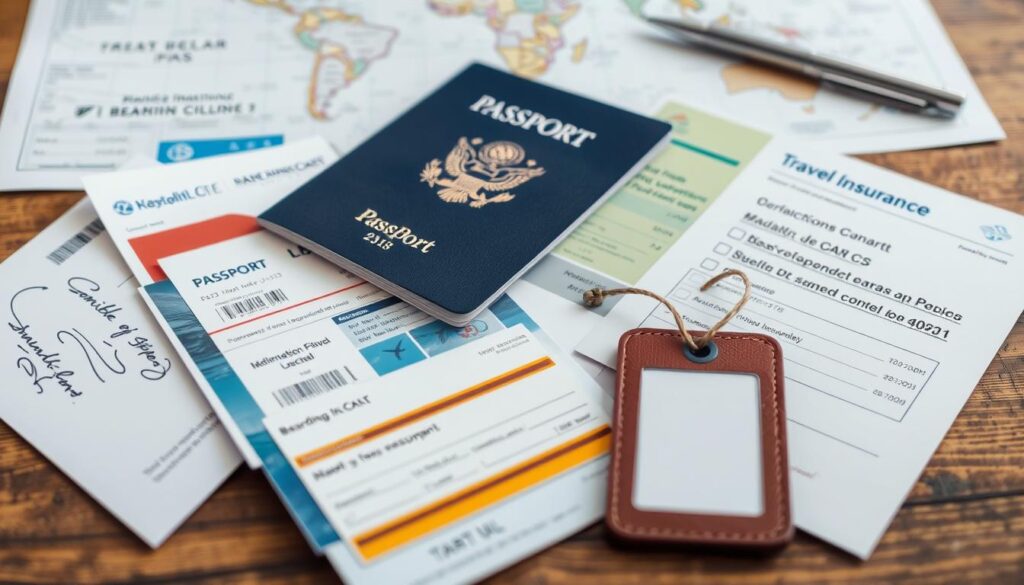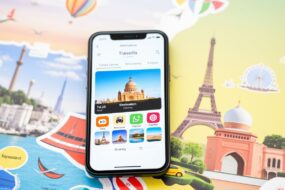
As a seasoned traveler, I’ve learned that planning is key for a great vacation. My dream trip to the Maldives was not smooth. Despite thorough research and early booking, I faced unexpected challenges.
Planning a trip can be complex, from dealing with peak seasons to finding the best travel deals. But, knowing the best times to plan can make your trip better and less stressful.
In this article, we’ll look at the best times to plan and book your next trip. We’ll use insights from Investopedia and GoAiroam. You’ll learn about the best times to travel, how to avoid crowds, and the benefits of planning ahead. This will help you plan your next trip with confidence and make it a success.
Key Takeaways
- Plan your vacation at least 12 months in advance to maximize your options and get the best deals.
- Book flights 4-6 months prior to your trip, with the sweet spot being 3-4 months in advance.
- Reserve accommodations 3-4 months before your departure, especially during peak seasons.
- Consider booking international flights about 60 days in advance, as the most cost-effective time has shifted in 2023.
- Avoid booking holiday travel during the busiest days to save on costs.
Determining the Ideal Time to Start Planning Your Vacation
Timing is key when planning your dream vacation. The right time to start planning depends on your trip. For most trips, start planning at least six months ahead.
This gives you time to research, compare prices, and book without stress. It’s better than rushing at the last minute.
Factors to Consider for Short vs. Long-Term Planning
Short trips, like weekend getaways, need only 1-3 months of planning. But, long trips require more time. For busy seasons or popular spots, start planning 8-12 months early.
This ensures you get the best deals and availability. If you’re traveling during holidays, start planning 12-15 months ahead.
For any trip, think about visas, passport validity, health advisories, and cultural norms 8-12 months in advance. Good planning makes your trip smooth and enjoyable.
Benefits of Booking in Advance
Booking early has many benefits. You get the best deals, more options, and peace of mind. It also gives you time to plan every detail.
Whether it’s a big adventure or a quick trip, plan early. This way, you can make the most of your travel and explore new places.
The Importance of Timing for Booking Flights and Accommodations
Timing is crucial when booking flights and hotels. Knowing the best times to book can help you save money and find the best deals. Planning ahead and making smart reservations can make your trip more affordable and enjoyable.
Expedia’s Air Travel Hacks report shows that Sundays are the cheapest days to book flights. International flights are 13% cheaper, and domestic flights are 6% cheaper on Sundays. For the best deals, book international flights 60 days in advance and domestic flights 28 days in advance. This can save you up to 24% on domestic flights and 10% on international flights compared to last-minute bookings.
| Flight Type | Ideal Booking Timeline | Potential Savings |
|---|---|---|
| International | 60 days in advance | 10% |
| Domestic | 28 days in advance | 24% |
Booking hotels early can also save you a lot of money. For warm-weather destinations, booking 3 months in advance can save up to 50%. This is especially true during busy times like winter and spring. But, booking last-minute in big cities can save up to 30% off peak prices, as hotels try to fill empty rooms.
Understanding the best times to book flights and hotels can help you save money. This way, you can enjoy your trip more, whether it’s during peak or off-peak seasons.
Questions to Ask Yourself When Planning a Trip
Creating the perfect vacation starts with knowing what you want. Think about your travel likes and needs. This way, you can make a trip plan that matches your dreams and makes your journey memorable.
Aligning Your Itinerary with Your Travel Preferences
Before you book your next trip, think about what you want. Do you want an active trip with outdoor fun or a relaxed trip for culture and food? Or maybe you’re looking for adventure or luxury? Knowing this helps you plan a trip that fits your style.
| Travel Preference | Destination Examples |
|---|---|
| Adventure | Galapagos Islands, Banff National Park, Moraine Lake |
| Culture | Egypt, China, Peru |
| Relaxation | Costa Rica, Thailand, Amalfi Coast |
Also, think about who you’re traveling with. Whether it’s alone, with a partner, or with family, your trip should meet everyone’s needs. Talk about what you all want to see and do to make sure everyone has a great time.

By carefully considering these questions, you can create a trip plan that’s just right for you. This way, your vacation will be one to remember.
best time to travel
Planning a memorable vacation means knowing when to go. Understanding seasonal travel factors and peak vs. off-peak periods is key. By looking at weather, travel costs, and popularity, you can pick the best time to visit.
Seasonal Factors and Weather Considerations
The time of year greatly affects your trip. For example, winter is best for skiing in places like the European Alps and North America’s Rocky Mountains. Summer is perfect for beach lovers in Africa, the Middle East, or the Caribbean.
It’s important to know the weather and seasonal factors of your destination. This helps you pack right and plan for activities and costs. Off-peak seasons often have better deals on travel, which is great for saving money.
Peak Vs. Off-Peak Considerations
The peak travel season, usually summer and holidays, sees high demand. This means higher prices and fewer options. Off-peak seasons, like spring and fall, offer better deals and fewer crowds.
Off-peak travel can be more relaxing and immersive. But, some places have their own peak and off-peak times. Always research your destination’s seasonality.
“The best time to travel is when you can find the best deals and when the weather is most favorable for the activities you want to do.”
Preparing for Your Trip: Documentation, Health, and Safety
Starting a new adventure is exciting. But, it’s important to have the right travel documents, health tips, and safety steps ready. This ensures a smooth and stress-free trip. Here are key things to think about as you plan your journey.
First, check your travel documentation. Make sure your passport is valid. If it’s not, renew it early. Also, find out if you need a visa for your destination and apply on time. Always carry copies of important documents like your passport and travel insurance.
Health and safety are crucial. See your doctor 4-6 weeks before your trip to talk about travel-specific vaccinations or medicines. Long flights can raise the risk of blood clots. Ask your doctor about ways to prevent this. Pack a travel health kit with essentials like medications, insect repellent, and a mask.
Getting travel insurance is a smart move, especially for international trips. Look for coverage for trip cancellation, health issues, and medical evacuation. This is important if you’re going to remote places. Also, sign up for the Department of State’s Smart Traveler Enrollment Program (STEP) for updates and help from the US government in emergencies.
Learn about the local laws, customs, and emergency procedures at your destination. Knowing these will help you travel with respect and be ready for any unexpected events.
By taking care of these travel documentation, health, and safety basics, you can start your trip feeling confident and ready for adventure.

Crafting the Perfect Itinerary: Activities, Budgeting, and Spontaneity
Creating the perfect travel plan is all about finding the right mix. You need to plan well but also leave room for surprises. This way, your trip will be both memorable and full of unexpected moments.
Balancing Planned Activities with Room for Unexpected Adventures
Most travelers, 72%, say a good plan makes their trip better. It helps them focus on what’s important and avoid wasting time. But, experts say it’s key to keep some room for spontaneity, about 40% of your time.
This balance lets you enjoy both the planned and unplanned parts of your trip. Spontaneous travel helps you find hidden spots and meet locals. Angela Becker, a travel expert, suggests mixing city visits with downtime.
| Expense Category | Percentage of Total Budget |
|---|---|
| Transportation | 10-15% |
| Accommodation | 20-40% |
| Food | 15-25% |
When budgeting, it’s important to do your homework. Transportation usually costs 10-15% of your budget. Accommodation can take up 20-40%, and food 15-25%. Cheaper options like street food are becoming more popular.
With smart planning and budgeting, you can make a great itinerary. It should include the best of your destination and room for surprises. The secret to a perfect trip is finding that balance between planning and being open to new experiences.
Conclusion
Reflecting on this article, planning your trip is key to a great vacation. It’s important to think about the best time to travel and prepare. This includes looking at seasonal changes and when it’s busy or quiet.
Booking early can also help you get the best deals. This way, you can make sure your trip is both successful and enjoyable.
When planning your trip, whether it’s short or long, it’s all about being organized. Use trip planning tips to make a good plan. This should fit your likes and leave room for surprises.
Good planning means you can enjoy your trip more. By following the advice in this article, you’ll be ready for an amazing journey.
FAQ
When is the best time to start planning a vacation?
The best time to plan a vacation depends on the trip type. For most trips, start planning six months ahead. This allows for research, price checks, and booking without last-minute stress.
How far in advance should I book flights and accommodations?
Book flights and hotels 3-6 months early, especially for busy times or popular spots. For domestic flights, book 1-3 months ahead. For international, book 2-6 months ahead.
What key factors should I consider when planning a trip?
Think about the trip’s purpose, who you’re traveling with, and your budget. Also, consider what you want to see and do. Don’t forget about travel documents, health, and local customs.
What are the advantages of booking a vacation in advance?
Booking early gets you the best deals and more choices. It also gives you time to plan and something to look forward to. Plus, you’ll feel more at ease.
Is there a difference between planning a vacation during peak season vs. off-season?
The off-peak season is better for deals and more options. But, last-minute deals can pop up during off-peak times too.
What important preparations should I make before my trip?
Make sure your passport is valid and get any needed visas. Check health advisories and if you need shots. Think about travel insurance and learn some local phrases.
How should I balance planned activities and spontaneity when crafting my travel itinerary?
Plan your trip’s details, but leave room for surprises. This way, you get the best of both worlds: a structured trip and room for adventure.
Recent Post
How to Plan a Trip: Your Ultimate
- October 13, 2024
- 11 min read
Best Travel Planning App: Organize Your Trip
- October 13, 2024
- 8 min read
Plan Your Dream Vacation with a Travel
- October 13, 2024
- 7 min read







